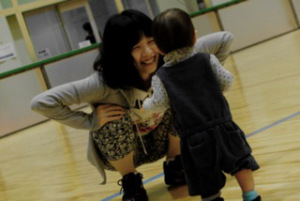Beyond the Standards
Standardized tests have their place in education. I believe it is wise to know where students rank in performance, academically, so the school districts and teachers know how to appropriately adjust the curriculum. I believe standardized tests can help increase quality education when strategically done. Though, over the last couple of decades, testing has been on the rise, and the impact of such an increase is starting to boil over. From, no child left behind to the recent implementation of common core, standardized testing has escalated to something beyond what it used to be. I believe time spent on prepping to executing standardized testing, has crossed the line from a healthy way to track performance to an unhealthy competition, of sorts.
“What happens when our students are, beyond the standards?”
When we devote months and after school hours to prepare children for standardized tests, are we preparing them for a quality education or are we creating a facade? Are we only teaching them to become test takers? Are we killing the joy of learning and teaching? As one teacher (Susan Sluyter, who quit after 25+ years of teaching) said in an article from the Washington Post, “My job is now about tests and data — not children. I quit“. At what point are the students considered valuable, beyond the standards? If the only way we accomplish knowing a students performance is by testing and more testing, and teaching them how to become test takers; but then are neglecting to personally know them, and their learning style; then I believe, overall, we are failing our students.
Currently, on top of all the standard testing, there has been recent increase in teacher evaluations. Right now in Michigan the stakes are high. Many teachers careers are on the line and their stress is increased. Evaluation intentions are good; but so far, all I’ve heard from teachers is how their teaching and individual quality time with students has greatly suffered. Teachers are facing higher turnover rates and more burnout than ever before. Twitter is littered with teacher hashtags on #burnout. So in between the prepping and the testing, they also have to prep for their own evaluations that take away from the time needed to teach and help their students. With all that is involved in testing and evaluations, it leaves me to question, does the teacher have time to actually know their students and apply new strategies to boost students learning? Are the teachers able to learn the students individual learning style and emotional needs and implement it to help improve their learning and performance? Or, are the students forced to conform to the standards while more testing and prepping is implemented?
There are stories upon stories out there that address the negative impact these increased tests are having on students and teachers. The stress doesn’t just stay in the classrooms. Parents, students, teachers, and their families are all affected by the increased testing. Parents are becoming concerned for their children’s well being. The Washington Post reported on, the harsh reality of how test driven curriculum affects kids. According to a Huffington Post article, New York Students Are Incredibly Stressed Out About Standardized Testing, Survey Says. There is currently an “#optout” movement that is sweeping the nation (you can find this growing movement on twitter). Here is yet another story, from the Washington Post, that talks about, legally opting-out from state standardized testing, with the constitution being on your side.
“If the only way we accomplish knowing a students performance is by testing and more testing, and teaching them how to become test takers; but then are neglecting to personally know them and their learning style, then I believe, overall, we are failing our students.”
What happens when our students are, beyond the standards? What about our gifted and 2e students and those that don’t perform well on test, like some of the artistic/creatively inclined? (You can read more about why gifted children don’t test well, here.) While many students may test well and fine, there are a percentage that do not. How does this impact their confidence, self esteem, and self image? How will they envision their future? When looking at the overall picture, one question arises, are they being under served when it comes to a quality education? It’s kind of a paradox. On one hand, standardized tests are suppose to be a tool used to increase quality; but when the students tested think beyond how a test is structured, and their perfectionism can get the best of them, how does this increase the quality of their education? If these students are known to not test well, then how are we appropriately measuring their ability and performance? How are we ensuring that quality education will be available to them?
So while testing can be a powerful tool and does have its place, when used in moderation and strategically done; I also believe increased testing can and has negatively impacted our students and teachers. Where we are at today, the importance standardization is above the students and teachers well being. It is overtaxing them, and in the long run, is under serving them. I believe our children’s needs are beyond today’s plethora of standardized tests. Less testing would allow the focus to be back on the child, their emotional needs, and learning style. It is imperative to bring the joy of learning back to the classroom to ensure a true quality education.
How do you feel about this topic?
Comment below. I’d love to hear your thoughts!
If you would like to read what other bloggers have to say on the topic of standardized testing? Click on the button below.
Remember to tweet using the hashtag,
#lesstests
I’m going to leave you with this video message.
It’s an artistic expression from a students point of view on standardized testing.
The person delivering the message talks about high ability learners failing tests and the affects the tests have on them as students. It’s apparent from the video that this isn’t just an issue in the USA. It seems to be somewhat global. I came across this video on twitter during the #whatif twitter campaign and thought it made some good points. It doesn’t reflect the thoughts, views or opinions of Patchwork Poppies. Though, I thought I’d share because it makes one think.
You can skip to, 0:44 where the message starts.
Lets stop this “Tall Poppy Syndrome” together. Lets embrace each other and help make this world a better place.
Spread the word!
I challenge you to share this with everyone you know!
Tweet it! Share it on facebook and other social media!
Use hashtags,
#gtchat
#testless
#teachnottest
#education
#edchat
#esea
With much love,
Nicole Diatto
patchworkpoppies
Most Popular Post of 2014 — If I’m So Smart Why Am I So Dumb?
 photo from Casey Fyfe, Unsplash
photo from Casey Fyfe, Unsplash
People may have told you that you were smart. But you may not feel smart. Why? Because you graduated from college with a 2.65 grade point average after changing your major 5 times. Why? Because you never finish any of the projects you start. Why? Because you can’t decide what color to paint the bedroom and it’s been three years. Why? Because you still daydream all the time and forget to tie your shoes. Why? Because you haven’t won the Nobel Prize. In fact, you haven’t won anything except the spelling bee in third grade. Why? Because you still cry when you gaze at the stars. Why? Because you know how much you don’t know.
Let me explain. It’s complicated.
• If you have multiple interests and abilities (multipotentiality), you may want to study many topics and not want to narrow yourself down to one…
View original post 306 more words
Preaching to the Choir
I think most of us who decided to start advocating for our children regarding gifted, decided to do so because they felt the need to bring awareness to the world around them based on personal hardships and misunderstandings. I know this is true here. I felt a need to be heard, understood, and to broaden others understanding on the topic of gifted.
I know for myself, I wish that those around me understood me the most. For the past month, I have asked myself, is it worth advocating for gifted through a blog? I mean, really… the only ones who seem to read it are the very ones going through the same struggles. It’s as if we are vindicating our selves and just, preaching to the choir.
It can be discouraging when the very people you wish saw your heart, and where you are coming from, look past it, and make it about some competition or into something else, instead of truly caring. The ones you wish read your blog or truly heard you, instead, let jealousy get in the way. I’d agree that family is the hardest to preach to when it comes to anything other than surface material, really. I believe this is why some or many of us advocates feel deflated and dejected at times. I know a lot have felt this way from school systems but I also know there are a lot out there who feel this way from the very ones they are related to or are personally close with.
This very topic was brought up in a community group I belong to. I was so relieved to hear I wasn’t the only one who felt this way. It also brought a new perspective. As I read how others felt, I realized at that moment, I wouldn’t have the connections, groups, or community I have today; if I hadn’t started my blog and started preaching to the choir, in the first place. Even though I wish those close to me would embrace what I have to say or embrace us for who we are, I’ve come to accept that I need my community more than I need those close to me to truly understand the gifted subject. As much as I hate or loathe seeing jealousy on some faces, I’ve come to a place in life where I know I can’t change their mind no matter how blue in the face I can get on the subject of gifted. If I can’t get through to them, at least I have my community and those in need of connecting who understand.
So, kudos to preaching to the choir!
Kudos to pushing boundaries and bringing awareness!
Also, thank you to those who have taken the time to read and embrace what we have to say.
Thank you for embracing each other and for helping make this world a better place.
Here is to a great community of individuals!
Cheers to a wonderful, 2015!
Lets stop this “Tall Poppy Syndrome” together. Lets embrace each other and help make this world a better place.
Spread the word!
I challenge you to share this with everyone you know!
Tweet it! Share it on facebook and other social media!
Use hashtags, #gtchat
With much love,
Nicole Diatto
patchworkpoppies

{GHF BLOG HOP} Major Themes Related to My Research on Gifted/2E Kids and Bullying
Great post on bullying and gifted/2e kids by Pamela Price!
Raising A Kid Who’s Just Like You
Wonderful post by Paula Prober. Oh how I can relate all too well.
 Flickr, Creative Commons, Mikey-A-Tucker
Flickr, Creative Commons, Mikey-A-Tucker
What do you do when you’re excruciatingly sensitive, severely intense, outrageously curious, and wildly imaginative and you’re raising a kid who is JUST LIKE YOU?
Do you– run away from home? Move to a state where marijuana is legal? Outsource your child to India? Create a reality TV show?
Maybe.
Are there other options?
Yep.
First, understand that you and your child are like this because you have rainforest minds. In the research on giftedness, you’ll find these characteristics described. They’re called overexcitabilities (OE). Named by the Polish psychiatrist K. Dabrowski.
Then, learn how your overexcitabilities can be understood, celebrated, managed and lovingly contained when necessary. (like when you’re in the supermarket and you’d rather not start sobbing over the asparagus or when your child is at school and s/he would rather not start sobbing in front of the school bully)
Share what you learn with your child.
View original post 290 more words

When One Twin is More Academically Gifted
Nsndh
The Intensity of Giftedness with Guest, Dr. Lynette Breedlove
Lynette Breedlove, Ph.D.
Dr.Lynette Breedlove, Director of The Carol Martin Gatton Academy of Mathematics and Science and Past President of TAGT, joined us this week to discuss the Intensity of Giftedness. Lynette will be conducting two Pre-Conference Sessions as well as presenting at this year’s TAGT Annual Conference in Fort Worth, Texas in December.
It was immediately apparent when asked what intensity looked like in gifted children that most participants at this chat had extensive experience identifying intensity. It was also noted that asynchronous development played an important role in shaping gifted children’s personalities. Dr. Breedlove explained, “When you are more sensitive and aware than others, you pick up on even slight differences in yourself and others. Most children are concerned about being different and intensity makes it a bigger deal to the child. The interplay between intensity and asynchrony makes things very complicated for students.”
A gifted child’s strong affective memory…
View original post 351 more words
Mommy Burnout
#gtchat #momblogger from the blog of, diary of a twin mom: a post on, mommy burnout
Being an Effective Advocate
This Sunday (Nov. 23, 2014) the OAGC Teacher’s Division will be hosting another tweetchat. The topic is Effective Advocacy. They have an awesome featured guest, Jeanne Bernish (@JeanneBernish). You can check out the discussion questions here.
As I prepare for to moderate this chat, I began to ponder what does it mean to be an effective advocate? I came up with three aspects of advocacy that will help all of us be more effective.
Build Relationships
It is important to know the student or students you are advocating for. One of the best things we can do for our students is to know them. We need to continually build relationships with students so we can help them get the best educational experience possible. Not only do we need to build relationships with students, but having a relationship with parents is also just as important. We need to…
View original post 319 more words




